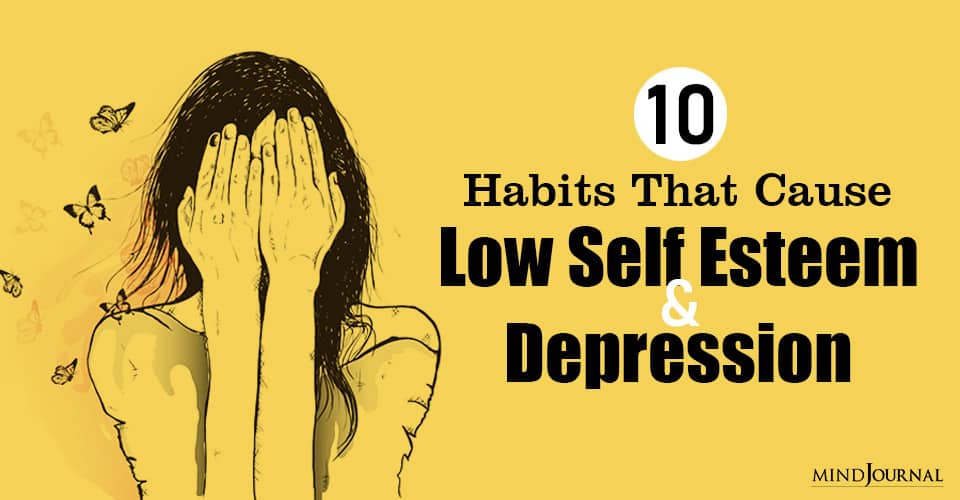When our self-esteem is low, which is typical of codependency, we’re at greater risk for depression. Codependency is learned, and so are self-esteem and the beliefs and habits that cause both low self-esteem and depression.
Self-esteem is what we think about ourselves. It includes positive and negative self-evaluations. Good self-esteem is a realistic, positive self-concept. It reflects self-respect and implies a feeling of worth that’s not determined by comparison to, or approval from, others. Self-acceptance (which some writers include as part of self-esteem) is even deeper. It’s a feeling of being good enough, neither perfect nor inadequate. We feel we have worth and are lovable, not merely because of beauty, talent, achievement, intelligence, status, or popularity. It’s a sense of inner contentment.
We each have intrinsic value, not based on how we perform or what we do or give. Just as every baby and breed of animals are unique and worthy of love, so are we. Unfortunately, as codependents, many of us grew up in families where love was nonexistent, conditional, or had to be earned. We believed that we had to earn or win the love of a parent.
As a result, we’re afraid to be authentic for fear we may be disliked. We may pursue people who cannot love and reject those who love us. We “over-do” or “over-give” in relationships and at work, and end up feeling resentful, used, or exploited.
Related: Self Liberation: How To Rewrite Your Toxic Life Stories
Habits That Cause Low Self Esteem And Depression

If you conclude that self-esteem is essential to enjoying your life and enjoying enduring, healthy relationships, you’re right!
The following bad habits, typical of codependents, can make you feel insecure, ashamed, anxious, sad, and hopeless:
1. Negatively compare yourself to others.
2. Find fault with yourself.
3. Tyrannize yourself with “Shoulds”.
4. Project self-criticism onto others and imagine they’re judging you.
5. Don’t try new things to avoid falling.
6. Procrastinate.
7. Doubt your instincts and decisions.
8. Ignore your needs and wants.
9. Don’t set boundaries and allow abuse, criticism, or exploitation.
10. Refuse to forgive yourself
When we compare ourselves to someone else, whether favorably or unfavorably, we are measuring ourselves by an external standard. Feeling “better than” someone is really a means to compensate for underlying shame and low self-esteem. The lift we get is false. It would be more helpful to wonder why we need to compare ourselves to someone else.

When we compare ourselves negatively, it’s self-shaming. We feel inferior, lose confidence, and like ourselves less. It depresses our mood and discourages us.
An active inner critic besieges us with what we should and should not do and second-guesses what we’ve already done. Habitual fault-finding can cause us to assume others see us as we see ourselves. In this way, we project our critic onto others and anticipate and feel the effects of criticism or judgment that we imagine, even when none occurs. This leads to shame anxiety, people-pleasing, and conflicts in relationships.
Lowered self-confidence causes us to fear making mistakes, looking foolish, or failing. Our self-esteem is always on the line, so it’s safer not to try anything new to avoid appearing incompetent or not succeeding. This is another reason we procrastinate tasks or experiences that are new or challenging.
Related: 5 Life-Changing Habits That Build Self Esteem
At the same time, we nag and criticize ourselves for failure to accomplish our goals. Rather than take a chance, we make ourselves wrong for not trying, which ensures “failure” and low self-esteem.
Accommodating others from an early age leaves us unsure of our values and beliefs and encourages reliance on others. Decision-making becomes difficult, even paralyzing. Low self-esteem and shame heighten our fear of making mistakes, leading to self-doubt, insecurity, and indecision. Instead, we procrastinate or look to others for validation, opinions, and answers, which further undermines our self-trust and self-esteem.
Accommodating others also alienates us from our needs and wants. By not acknowledging, expressing, and meeting our needs and wants, we’re admitting to ourselves and others that they’re not important; ergo, that we’re not important. On the other hand, taking responsibility to meet our needs and/or ask for them (such as asking for a raise) builds self-esteem. When we don’t, we feel helpless and a victim of circumstances and other people.
Not feeling worthy of love and respect – which we deny to ourselves – makes us vulnerable to abuse and exploitation. We don’t feel worthy of being treated well, and deny, excuse, or rationalize being abused or disrespected. Dependent upon others’ approval, we’re afraid to set boundaries lest we alienate those we love or need.
We’re quick to blame ourselves and readily accept blame from others because we’re guilt-ridden due to shame. Although we forgive the mistakes of others, especially if we receive an apology, we’re not as kind to ourselves. Apologies to ourselves don’t count. In fact, we can punish ourselves or hold a grudge against ourselves for years over past mistakes.
Treatment for Low Self-Esteem and Depression
Fortunately, we can grow our self-esteem and increase our capacity for self-fulfilment. It will enhance our creativity, ambition, physical and emotional health, loving relationships, and resilience in the face of adversity. It is the key to success. (Assess your self-esteem in this online quiz.) There’s a lot you can do on your own by following the steps in How to Raise Your Self-Esteem webinar.
Related: Jim Carrey On Depression In An Eye-Opening Interview
Cognitive-behavioral therapy (“CBT”) is effective in treating both codependency and low self-esteem. Research has consistently found a link between depression and low self-esteem, and also that raising self-esteem using CBT reduces depression.[i] Treating any underlying trauma is also important, particularly when it’s focused on changing erroneous and self-shaming beliefs.
[i] Tsai-Hwei Chen, et al., “The Evaluation of Cognitive-Behavioral Group Therapy on Patient Depression and Self-Esteem;” Gardner & Oei, “Depression and Self-Esteem”)
©Darlene Lancer 2017
Written by Darlene Lancer JD, MFT
Originally appeared on WhatIsCodependency.com












Leave a Reply